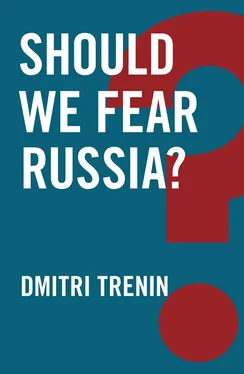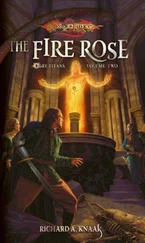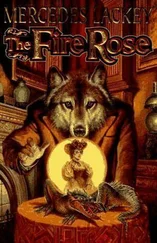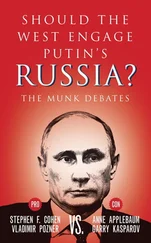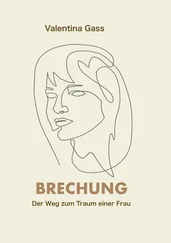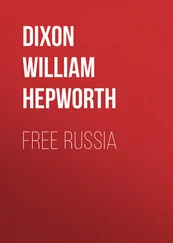Supporting Ukraine and other non-NATO states
In 2014, Western countries gave immediate and full support to the leaders of the Euromaidan revolution that toppled the corrupt Yanukovych regime. Western support, however, was powerless to prevent the seizure of Crimea by Russian forces or the Russian intervention in Donbass. What NATO would have done in the event of a large-scale Russian invasion of Ukraine, which might have been an option considered by the Kremlin in 2014, is a moot point. In actual fact, the United States and its allies supplied Ukraine with intelligence and non-lethal military equipment, but stopped short of sending weapons which could have led to an escalation toward direct collision with Russia.
For the same reason, NATO membership for Ukraine is difficult to imagine while the conflict with Russia continues. Analogies with post-World War II Germany are far-fetched here, and, while they recognize Crimea as part of Ukraine, Western governments would not risk going to war with Russia over it. The United States, focused elsewhere, has de facto subcontracted daily management of the Ukraine crisis to Germany, flanked by France. The Minsk I and II agreements, which Berlin and Paris helped forge, resulted in a ceasefire in Donbass by the spring of 2015 and offered a tentative path to a political solution, but in reality they froze the conflict.
The terms of Minsk II, incidentally, are actually quite acceptable to Moscow but are anathema to Kiev. The agreement would result in Ukraine giving its regions, including Donbass, the power of veto over accession bids to alliances such as NATO and, moreover, would legitimize the anti-Maidan authorities in Donbass. No wonder that Kiev’s best option is to sabotage the accord’s implementation.
Ukraine’s association with the European Union – the issue which sparked off the revolution in Kiev – has been a reality since 2015. A deep free trade area between the EU and Ukraine is a fact, even if EU membership for the latter is at best a long way off. Trade between Ukraine and Russia has collapsed. Ukrainians are on track to visa-free entry into the Schengen countries, while Kiev has banned all air travel with Russia. Post-Maidan Ukraine, while still ruled essentially by a corrupt oligarchy, is geopolitically westward-leaning, and the Ukrainian political nation is being built on a clear anti-Russian foundation. Russia may control Donbass for the time being, and may keep Crimea for good, but the bulk of Ukraine has become a ward of the West. Ukraine’s overall stability now depends not so much on defense from Russia as on Kiev’s ability to deal with the hard-hit economy and deep-seated corruption.
Georgia, two of whose former provinces, Abkhazia and South Ossetia, have been recognized by Russia as independent states – with Russian garrisons in place in both – has recently maintained a calm relationship with Russia, with low border tensions and a revival of trade. In 2014, the EU concluded an association agreement with Georgia, and NATO reaffirmed its pledge to admit the country sometime in the future. Interestingly, in contrast to what happened in Ukraine, this did not evoke overly negative reactions from Moscow. To the Kremlin, the current pro-Western but predictable government in Tbilisi led by the “Georgian Dream” coalition is much preferable to the regime of former President Mikheil Saakashvili, now governor of Ukrainian Odessa, whom Russia does not want to see back in power in Georgia.
In Moldova, the EU has been seeking to preserve the country’s European orientation, despite periodic corruption scandals in the ruling coalition and the rise of pro-Russian opposition parties. For Moscow, however, Moldova’s importance cannot be compared to that of Ukraine. The Kremlin is paying attention to the small impoverished country and is supporting its clients there, but it is not prepared to mount a major effort to draw Moldova into its orbit. However, Ukraine’s decision in 2015 to ban Russian military transit to Transnistria, a separatist enclave which broke off from Moldova in 1990, has squeezed the small (1,500 men or so) Russian garrison in the area and raised fears of incidents. This is a latent conflict which should be closely watched, lest it creates another hot spot in Russian–Western relations.
To roll back traditional Russian influence in the Balkans, NATO in 2015 invited Montenegro to join, despite the unsavory reputation of its government – whose leader Milo Jukanovich has been in place for twenty-five years, longer than Belarus’s Lukashenko – and the less than enthusiastic support for membership among ordinary Montenegrins. The EU has also been managing an ever closer association with Serbia (Russia’s main historical ally in the region) and Kosovo. Brussels essentially told Bulgaria, also known for long-standing ties with Russia, to withdraw from Gazprom’s South Stream project. Western capitals monitored closely the flirtations with Moscow of Viktor Orbán’s right-wing government in Hungary and Alexis Tsipras’s left-wing Syriza cabinet in Greece, but eventually concluded that both are simply opportunistic. In any event, a campaign to rid South-Eastern Europe of remnants of Russian influence was in full evidence.
Information warfare
Information space, which despite the confrontation has essentially remained a global commons, has become a major battleground in the new Western–Russian rivalry. The Western mainstream media were virtually unanimous in strongly condemning Russia’s violation of Ukraine’s sovereignty in Crimea, the intervention in Donbass and the downing of the Malaysian plane, and were in wholesale repudiation of the Russian regime, its corruption and backward-looking ideological underpinnings, its cultural conservatism, and its neo-imperial ambitions backed by military force. As a result, the image of the Russian Federation in the West is now arguably worse than that of the communist Soviet Union in its heyday. Given such public attitudes, it was probably easier for US and British leaders to engage Joseph Stalin in the 1940s and Leonid Brezhnev in the 1970s than it is for their current successors to reach out to Vladimir Putin.
The Russian state-controlled media, for their part, have launched a most vitriolic campaign against the West, above all the United States. This campaign, too, has broken a few historical records. The disrespect and disdain accorded Vladimir Putin in the West is richly reciprocated by the Russian media depicting US and other Western leaders. Old taboos which were in effect during the Soviet period have been lifted. Apart from the invasion of Iraq, the bombing of Belgrade and the destruction of Libya, the United States stands accused of anything from plotting to dismember Russia to masterminding the Arab Spring to helping create al-Qaeda and ISIS. Arguably, this campaign can be stopped by the Kremlin at a moment’s notice, but the longer it continues, the more of a mark it will leave on Russian people’s minds.
Compared to stale Soviet propaganda, the products of the Russian state-owned media are of superior quality. The Kremlin may have created one of the most efficient and effective public information tools any government possesses in today’s world. Its TV broadcasts are timely, vivid and often highly persuasive, at least for the Russian audience. Vladimir Putin owes part of his phenomenal popularity to Russian television reaching out to ordinary men and women in the country and communicating to them a narrative they believe. Mr Putin himself is an accomplished story-teller, capable of connecting to the bulk of his electorate. Again, unlike his Soviet forerunners, Putin succeeds in an open information space, where the rate of Internet penetration has reached 72 percent.
There can be no repeat of the high accomplishments of Western propaganda instruments during the Cold War, when, despite the Iron Curtain and the massive Soviet jamming of foreign broadcasts, the BBC, the Voice of America, Deutsche Welle, Radio Liberty and others had millions of listeners across the Soviet Union, who turned to them in search of reliable news and convincing explanations. BBC TV can be had on cable in major Russian cities; Radio Liberty has a studio in downtown Moscow; and VOA is freely available on the Internet. There is even a Russian government-supported web portal, Inosmi.ru, which publishes uncensored translations of all important articles in the Western media about Russia. Rather than hushing up criticism of Russia and its leaders, which the Soviet Union practiced all the time, the Russian state-run media attack this criticism immediately, head-on, and seek to demolish the Western story. Moscow is now not afraid of critical words and counters them with words and images of its own. Most Russians find this approach compelling.
Читать дальше
